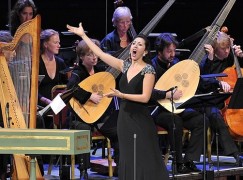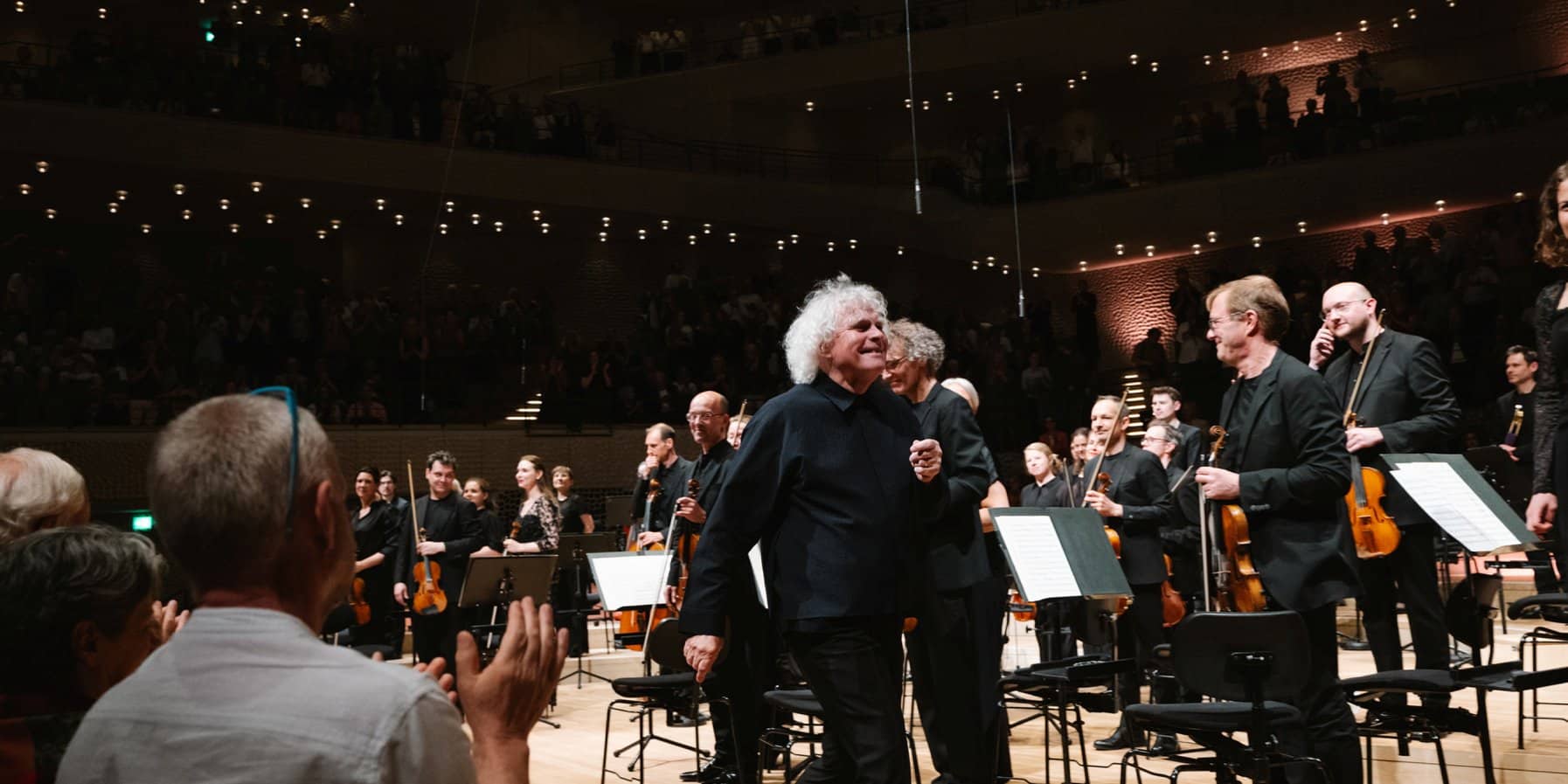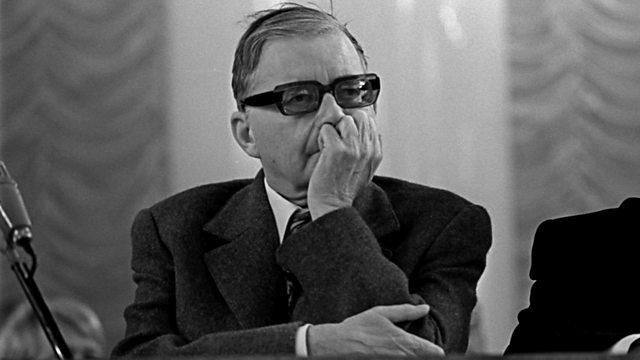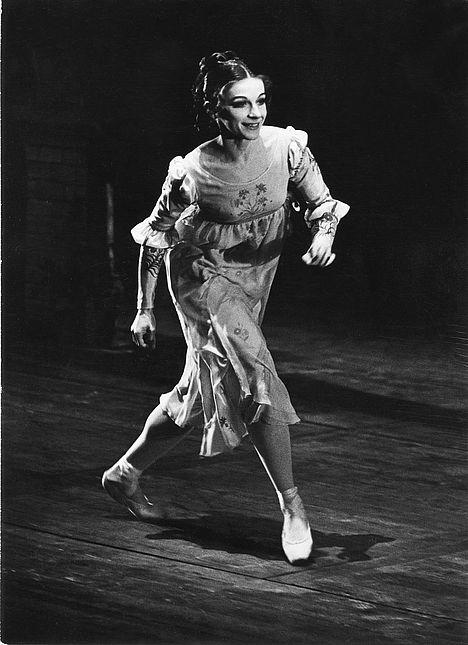Press fail (2): The BBC Prom that wasn’t doped
mainFrom a correspondent:
I saw that in his review for the Telegraph Rupert Christiansen claimed that Orfeo at the Proms was amplified. I thought it wasn’t true. [He wrote that he] “was rather disturbed by evidence of opera’s equivalent to doping in athletics: electronic amplification.” (http://www.telegraph.co.uk/
Today, that portion has been removed, without any explanation or apology.
If one googles “christiansen orfeo proms “opera’s equivalent to doping”” this result still appears:
Proms 2015: Prom 25, Monteverdi – Orfeo, review: ‘
www.telegraph.co.uk/…/proms–
1 day ago – Francesca Aspromonte sings in Monteverdi’s Orfeo at the Proms Credit: CHRIS CHRISTODOULOU. Rupert Christiansen … was rather disturbed by evidence of opera’s equivalent to doping in athletics: electronic amplification.
I was there with some fellow enthusiastic amateur opera-goers. We discussed the possibility when we saw the microphones worn by principals – but radio 3 certainly doesn’t economize with the number of microphones it uses. It didn’t sound to us like it was, given the considerable variation based on direction and location of singers; if it was amplified it was done so as to be undetectable from where we sat. We did not have the very best seats (choir) and when the singers pointed the other way, there was a variation in quality. Certainly there was amplification of some of the keyboard music but I have always understood that as fair game for early music in larger venues.
It appears to me that this has been very quietly removed. As an amateur without any musical training, I might be fooled. But isn’t the point of a critic that they can tell the difference? Or was the line about doping just too clever to cut? The silent removal doesn’t say much for editorial standards at the Telegraph either.

photo: Chris Christodoulou/Lebrecht Music&Arts





I am happy to explain. I was amazed and baffled by the plethora of mikes and head mikes used during the Prom – something I had never witnessed before – and thought fit to remark on this, given the remarkable clarity with which every note of the score was projected in the difficult acoustic of the Albert Hall. My review has to be filed to the paper early in the morning after the performance, so there was on time to check out my supposition.
Subsequent to various missives from the BBC and John Eliot Gardiner’s spokesman, I was assured that no element of amplification was involved. The simplest and quickest thing to do seemed to be to delete all mention of this from the review – on daily newspapers you have to work fast and not cause hard-pressed sub-editors extra work- but it was not possible to alter the copy for the printed edition of the paper.
I do of course take full responsibility for my error and apologise for it. My admiration for the performers is redoubled!
Thanks, Rupert. Ah, JEG’s spokesperson. Been there, had the earful.
You mean his wife, Isabella? Oy veh!
Rupert
I just saw your hero Christian Gerhaher as Orfeo in Munich. FANTASTIC!!!
I nearly bought your review Rupert. I was up at the back in the circle, and the diction of the singers was perfectly clear. I put that down to having a small orchestra and a very quiet audience. But the amplification conspiracy doesn’t quite work, why did the voice of the Messenger come from below and then move to the side? I could see the audience turning round. And why did the voice of Echo clearly come from the back in the gods. Does the RAH have the best surround sound ever? And Apollo’s voice position clearly changed as he walked down the stairs.
The Proms have had plenty of mikes hanging down for years. But the set up was due to to the split in the orchestra and singers running back and forth through that split. Rather than singers standing on the apron near the broadcast mikes. Hope that is true, otherwise I have seen the Lance Armstrong production of L’Orfeo.
Some ‘period works’ do better with amplification, like Cage’s 4’3″.
PS Sorry, 30′ seem to have fallen-off. That was not an earlier version of the piece. I meant: 4’33”.
Your hoary jab at a composer infinitely more talented and successful than yourself wasn’t funny either way.
John B, I’m afraid you did make me laugh, but then I have that British sense of humour that some people just don’t like! And I write under my own name too!!!
But I was there, and they were wearing little microphones taped to the cheek, as you often see in West End theatre. So if the official line is that no element of amplification was involved, then what were these microphones for? I can imagine that because the singers moved around the stage, and in one case (Francesca Aspromonte’s Messenger) walked from the back of the arena (passing less than a metre by me) accompanied by Elizabeth Kenny playing a theorbo, with a microphone pack clipped to her waistband marked ‘theorbo’, that the small mikes were there to mitigate against the sound moving close to or further from the static mikes set up for the radio broadcast. Such would be perfectly natural. But in that case, why should the BBC and Maestro Gardiner be so concerned to deny that electronic assistance was utilised??
And to be fair, it’s almost impossible to form an accurate assessment of sound quality in the acoustic of the RAH. Nothing sounds natural in there.
What we’ve learnt from this is that Rupert Christiansen, a man who is paid to listen, trusts his eyes more than his ears, and can’t tell, from listening, how an amplified human voice differs from an unamplified one.
Any kind of apology for a particularly aggressive piece then, Norman?
From all this as a singer, I’m none the wiser if there was amplification or not. I suspect there might have been, regardless of what is being said. But if we take those in the know at their word, then perhaps the mikes were for the radio relay. My experience of anything to do with Early Music in the Albert Hall, or Bach being put on with 12 to 20 voices and a few instruments, is that you’re best staying at home as you’ll always get a better sound quality on the radio. I learnt my experience the hard way from going to St John Passion there many years ago with only four singers to each part, and you could hardly hear them, and they were all trained singers – but Early Music singers.
I was there, at the back of the gods. It never once occurred to me that there was amplification of the voices. I am a musician and seasoned concert-goer who CAN tell the difference!!